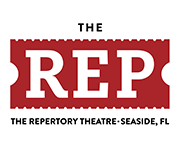Sanctioned by some portion of the government as evidenced by their existence.
Well I guess that would be the legislative and executive branches then.

Sanctioned by some portion of the government as evidenced by their existence.
Okay, I may have been right that it is not a First Amendment issue, that it is political and highly subjective.
I found a Slate article from 2003 that delved into this issue, inspired by the controversy surrounding states' "Choose Life" plates. Here is one relevant passage:
Whether or not the tags are "controversial" or even "political" or "opposable" is irrelevant for First Amendment purposes, when the legislature is breezily permitting some to be created and others to be denied. The relevant question is whether state legislatures are taking it upon themselves to decide what "political" or "controversial" mean in the first place, and what standards they use to do so, because in doing so, they are by definition discriminating based on viewpoint. While different states have different mechanisms for approving the programs, most involve some advocacy group proving to the legislature that there is sufficient demand for the plates to generate income. That means that if an organization can get enough signatures pledging to buy the plates, the legislature will consider it. Which in turn means that only popular viewpoints can pass the initial threshold. And if Maynard taught us anything, it was that "the First Amendment protects the right of individuals to hold a point of view different from the majority." Permission to speak shouldn't be doled out by the state based on the popularity of the idea.
But that isn't the end of the unbridled discretion. Because once a bill is in the hands of the legislature, it seems to be a sort of political free-for-all as to whether they wish to approve or disapprove of any group's message. Arkansas refused to give the Knights of Columbus a specialty plate, for fear that the KKK would want one, too. The California legislature went berserk over whether the Boy Scouts should get plates, because some felt the group was discriminatory. So, state discretion doesn't stop with the promotion of only popular ideas. It becomes even more blatant as lawmakers decide whether they approve of the ideas, and apparently, they make these decisions without standards or rules either.
The entire opinion piece/analysis can be found at the link below. I found it fascinating.
http://www.slate.com/id/2078247/
 I'm going tomorrow to the DMV to see if Cat Butt is taken.;-)
I'm going tomorrow to the DMV to see if Cat Butt is taken.;-)After this I think the tags are just a bad ideaI'm going tomorrow to the DMV to see if Cat Butt is taken.;-)

So are we going answer every question with a question?
 Was that was not an answer?
Was that was not an answer?There are currently 108 license plates in Florida. I have not reviewed the list. Am I to believe that each of this non-profit organizations is a government sanctioned entity?
I've been waiting for this one
 Can you do one with the Miss Kitty tar in the middle????????
Can you do one with the Miss Kitty tar in the middle????????Miss Kitty in the middle? Of the swing like you didn't care?I've been waiting for this oneCan you do one with the Miss Kitty tar in the middle????????



